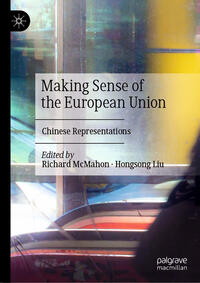
This book explores how different Chinese social groups portray or discuss the European Union. The authors engage with issues such as trade, populism, EU crises, systemic rivalry and the Chinese media’s representation of European integration and Brexit. They use qualitative, quantitative and mixed-methods empirical research to show that, despite China’s authoritarian political system, social actors construct complex representations of the EU that may influence government policy. Rather than dismissing Chinese scholars as little more than state agents, one can benefit from their unique insights by analysing the prisms through which they view the world. In doing so, Western scholars can better understand the distinct institutional and cultural traditions that filter their own views of China.